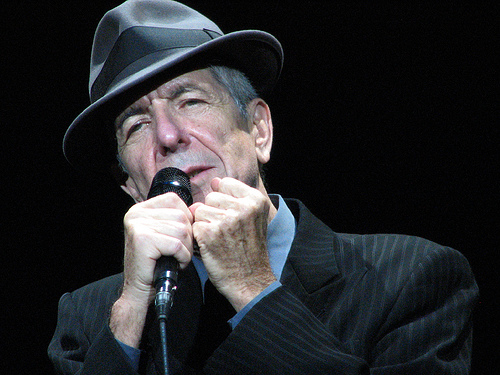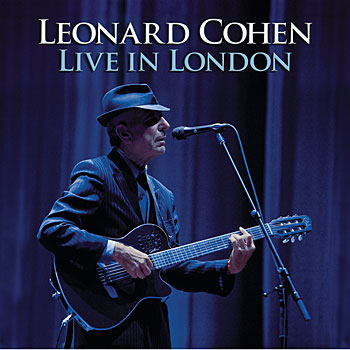An event of note last night here at Columbia’s Miller Theater: Music critic Greil Marcus, Princeton historian Sean Wilentz, and Oxford poetry scholar Christopher Ricks came together to contemplate Dylania old and new. Marcus began by speaking on the many lives of “Masters of War,” including Dylan’s Gulf War I Grammy performance and the recent “Coalition of the Willing” episode at a Boulder, Colorado high school. Wilentz followed by discussing Dylan’s debts of gratitude (and debt to history) in the recent Chronicles. And Ricks punned his way through a priceless disquisition on Blonde on Blonde and the differences among poetry, prose, and song, finishing his remarks with a defense of “Just Like a Woman,” which apparently has been deemed misogynistic in certain academic corners. (I asked the panel about the mixed reception to Masked & Anonymous, and Wilentz & Marcus in particular praised it as an underrated film…I’ll probably have to see it again at some point.)
All in all, it was quite an interesting evening of Dylanology, although I must admit, I was a bit put off by some of Ricks’ comments in the Q&A session — He called “Masters of War” (and, for that matter, “The Death of Emmett Till“) self-absorbed and overly tendentious songs, which I think there’s a good deal of truth to, but then proceeded to castigate the audience for indulging its generally anti-Bush sentiment (via some mild chuckling) during Marcus’ Coalition of the Willing anecdote. Ricks began by deploring knee-jerk political responses in either direction as a typically American (and occasionally Dylanian) vice…ok, fine, that’s a criticism we’ve all heard before. “Fist fighting is here to stay,
It’s just the old American way.” But Ricks then went on to bemoan the tribulations faced by his poor right-wing friends in Massachusetts, who thought — correctly, in Ricks’ view — that “John Kerry didn’t deserve the presidency.” (As you might expect, this gave the smattering of right-leaning folk amid the audience a chance to clap vociferously and to indulge anew the currently-popular fallacy that they’re an oppressed minority.)
Yes, unfortunately, the decline of civility in debate and the “MacNeill-Lehrerization” of every issue into two opposite and irreconcilable poles are lamentable repercussions of the way politics is practiced today, as Jon Stewart famously noted on Crossfire several months ago. (Or, as Bob once put it, “Lies that life is black and white spoke from my skull…Ah, but I was so much older then,
I’m younger than that now.“) But that doesn’t mean that Americans’ opinions of the war in Iraq aren’t well-thought out and hard-won. Ricks treated the issue as basically six-one, half-dozen-the-other, that to voice an opinion about the Iraq War is somehow irresponsible and — worse — uncouth. (Whatsmore, I had no idea what anybody’s politics were until Ricks began complaining about the presumed incivility in the room, at which point the audience immediately bifurcated into lefties and righties.) In sum, incivility is a serious problem, sure. But, for that matter, so is war.
The Q&A aside, though, the evening made for an eloquent appreciation of the many gifts of Bob Dylan, gifts further illuminated by the warmth and regard with which Marcus, Wilentz and Ricks held these songs to the light and uncovered some of their fragile tendrils of meaning and allusion. And if nothing else, the conference made for an excellent excuse to go home and delve into Bob’s back pages for the remainder of the evening, and listen to old songs with new ears.


